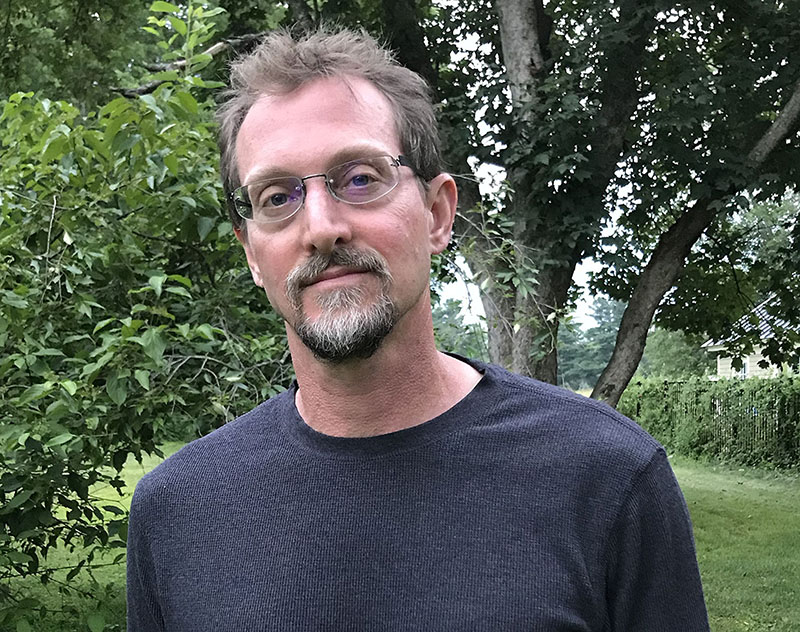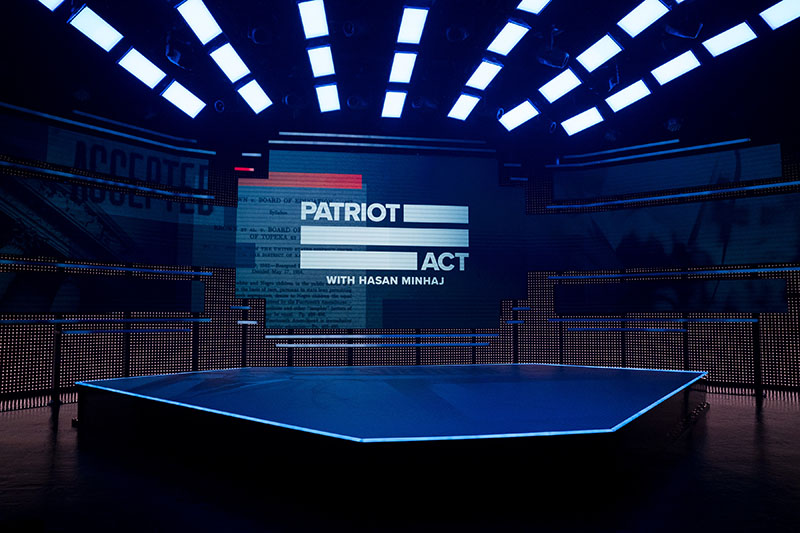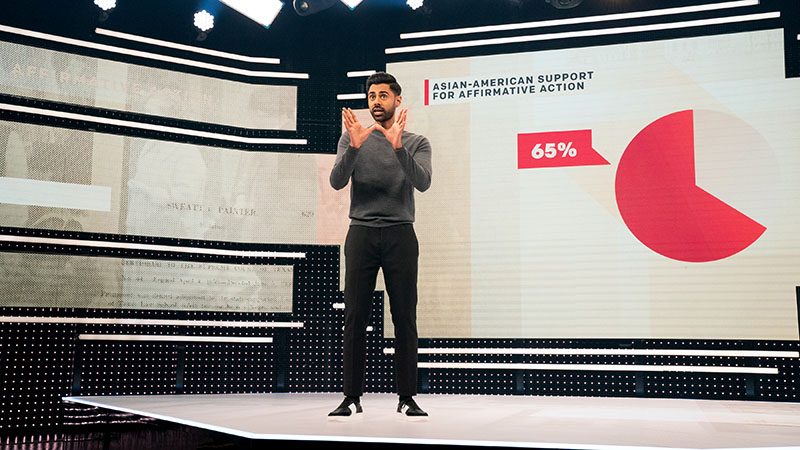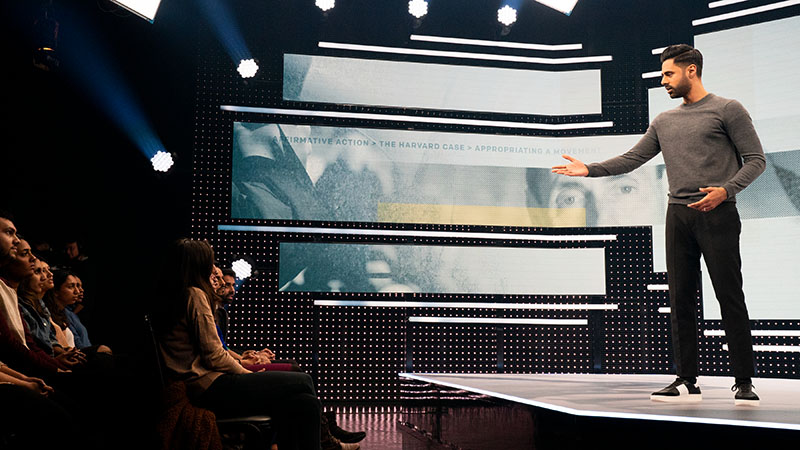
Screens Producer, Media Server Programmer and General Technologist
Rodd McLaughlin, principal of RGM Productions, Inc., started out working as an electrician in theater, but quickly moved into the world of lighting programming for not only theater, but industrials, fashion shows and television. While working as a technician/programmer behind the scenes on a variety of projects, McLaughlin developed a knack for seeing where entertainment technology was heading, continually learning and mastering new consoles and new skills. He was at the forefront of previsualization for lighting — then video, and was a principal with Prelite Studios, eventually moving on to content creation for low resolution video displays with Idyll Hands Imagery, his company with Patrick Dierson. As networks and workflows got bigger and more complicated, his expertise and experience has become a relied upon resource. He currently works with clients on understanding new technology and streamlining workflows on multi-screen and ultra-wide screen events as a consultant. He most recently programmed a 30K canvas for Amazon Web Services, and his numerous consultation projects have included work on the Netflix series, Patriot Act with Hasan Minhaj, Queen + Adam Lambert and the Rolling Stones.

I know that you didn’t go to school for theater, how did you get started in the entertainment technology industry?
No, I jumped right in from having worked on lighting for community theater. I moved to the East Coast and started throwing resumes all over, as you did back then. In 1983, I got an internship at the George Street Playhouse in New Brunswick, NJ. They never hired a production electrician that first year, so I moved into that role and officially became the production electrician my second year. I was there for three years. I started working theater Off-Broadway and in 1986, I moved into New York and I started freelancing.

When did you make the transition from theater into industrials, television and event work?
I started doing fashion shows early on; I did the first tent in Bryant Park. I remember shortly thereafter saying, ‘You know what, I’ve got to branch out and start doing work in other markets.’ In the late 80s, I met Andy Henry; that was really what took me into the world of corporate. Andy really started me in that world. As part of that work, I met [gaffer] Tom Blancato, which is how I ended up working on the ‘92 Democratic Convention. Tom has always had a strong television background. That’s where some of the television work came in, plus I met some people from [TV lighting design firm] New York City Lites and started working with them. I did one Broadway show as an electrician, but I was definitely having more fun doing corporate and television. I certainly found, over the years, the more diverse you are in terms of the markets you’re in, the easier it is to deal with economic downturns.

Describe what you’re doing these days with the consulting side of things.
The consulting work that I do now works in a couple of different ways. One is, I work as a d3/disguise specialist. So, when they have new clients coming on to disguise in a DMX controlled world, I go out and ease that transition and — to a certain degree — be the living manual for people; really help get them onboard. Making sure that their first experience with disguise was a pleasant experience rather than a frustrating one. Through that, I started consulting on systems and helping people get their workflow up and running. That has led to things like working on the TV show Patriot Act with Hasan Minhaj and helping them with their previz system as well as their overall media workflow.
Were there particular jobs you think really set you on your course or were milestones?
I don’t know that any one project led to anything new. I think it’s an overall approach; it’s just bringing different things to those projects. I think it’s really the people that you meet along the way and that it’s a progression more than any one breakthrough project. With designers, I could see that happening more; people say ‘Hey, get that guy from that project.’ I don’t feel like we have — on the technical side — that kind of exposure. It is really about the people you work with and them getting to know you and your work. So there really haven’t been particular projects as much as it has been really a progression for my career.
Who have some of your mentors been?
From the technical side Andy Henry was a huge influence in terms of getting into the world of understanding how to do corporate shows. Tom Blancato is still one of the best production electricians I know. David Agress continues to teach me about how to work with people and have a great time doing it. And then, of course, the whole team of people who used to meet at a bar in Midtown — Hog 2 programmers: Laura Frank, Paul Sonnleitner, Tim Rogers, David Arch, Cory FitzGerald. We created that community and shared the knowledge. Even though we were all sort of competing for the same projects, we knew that there was enough work around that it was better for all of us to be better at our jobs; that we could always just count on one another to have those projects covered.
What do you enjoy about your work in this industry?
I have to say that to this day, my favorite aspect of the industry, besides just the entertaining people that you run into, are the private concerts that you get via sound checks. Between working on VH-1’s Unplugged series and now working on Queen and Rolling Stones, to have those private moments, whether those are interactions with the artists or the designers. It’s those little things that happen in the background that become significant things.
What are some of the technology things that you see coming up on the horizon?
Well, I’m interested in the whole XR [Extended Reality] fun that’s going on. I think that we’re going to find a broader application for gaming engines than just as an overlay or real-time. I think we’re going to find other truly innovative ways to use that real-time aspect for live events. And then, aside from that, some of the stuff that I’m working on in terms of workflow enhancements. I do a lot of work with TouchDesigner, and there’s a great community around it as well.
Is there a piece of advice that you’d give to somebody early in their career in this industry?
Cory FitzGerald said, “Don’t turn down gigs when you’re first starting out.” I’d add a corollary to that idea: “But as you move along in your career, feel free to get pickier and choose projects that are with people that you’re going to like.” You’re sitting in close quarters for days on end; it’s always better when you and the people you are around are pleasant.
What has surprised you most about your career path?
That I have managed to have one at all. We are all incredibly fortunate to do the things we do.


